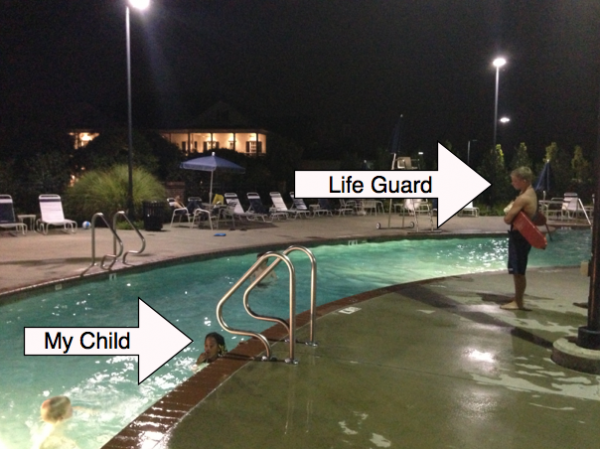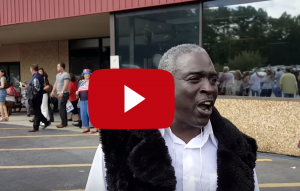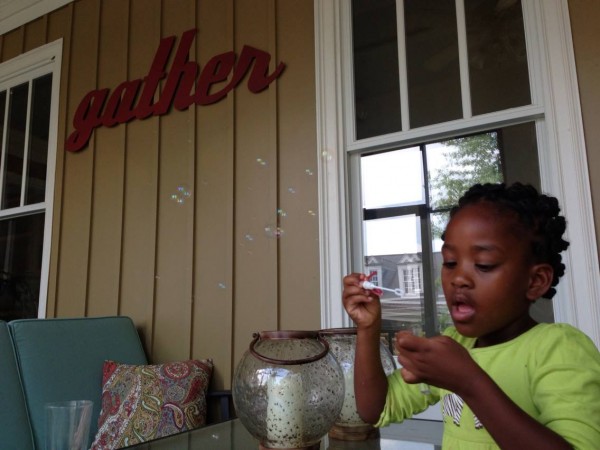
It was Saturday night and summer had finally arrived back in middle Tennessee. My family was enjoying night swimming with out-of-town friends before the oh-so-dreaded bedtime.
Naomi was happily splashing around in our neighbor pool in Franklin, and my friend and I watched from the side and chatted about old times. Suddenly, I noticed a woman talking to Naomi. This happens sometimes. She’s cute, she has yellow beads in her hair, and she smiles a great deal. People say hello.
But this conversation went on for too long. I could overhear part of the dialogue, and the adult’s tone was adamant.
“I know your mother’s right there,” the lady said to Naomi’s pal Emma Jane. “But where is her mother?”
“She’s right there,” Emma Jane said, pointing to me.
“No, who does she belong to,” she stressed.
I walked over to Naomi and her inquisitor, worried that Naomi had done something wrong I’d somehow missed while I was chatting with my dear friend.
“What’s going on?” I asked.
“I just care about safety,” she said. “Is she with you?”
“I’m her mother.”
“Well, I just wanted to make sure she was supervised. I couldn’t tell who was watching her, or who she was with,” she said.
After the lady walked away, I was infuriated. There were probably thirty kids in the pool – all of them white except Naomi. My child had a fluorescent green band on her arm, indicating we’d come in the front entrance like everyone else. We live a couple streets away from our community’s pools.
We belong.
If the woman were truly concerned about “safety,” she would’ve asked the white kids about the whereabouts of their parents. Plus, as you can see from the photo I snapped right after she left, a lifeguard kept watch within just a few feet of her. (You can also tell from the photo how close I was to the kids.)
It’s clear to me that the woman wasn’t concerned about “safety,” but rather she was concerned that there was a little black girl swimming in her neighborhood pool. Though she didn’t say anything that was ostensibly rude, her urgent questioning demanded my five year old justify her presence. Her words were more than a simple request for information; they were camouflage for her deeper suspicions.
You are different, she implies.
You are a potential problem, she believes.
You are not safe, she assumes.
You don’t belong here, she insinuates, before walking off and leaving me standing there angrily fighting back tears.
This is not the first time this has happened, and it won’t be the last. But it hurts every time someone assumes my child is an issue merely because of her skin color.









